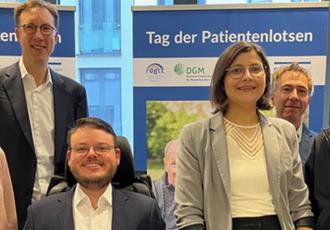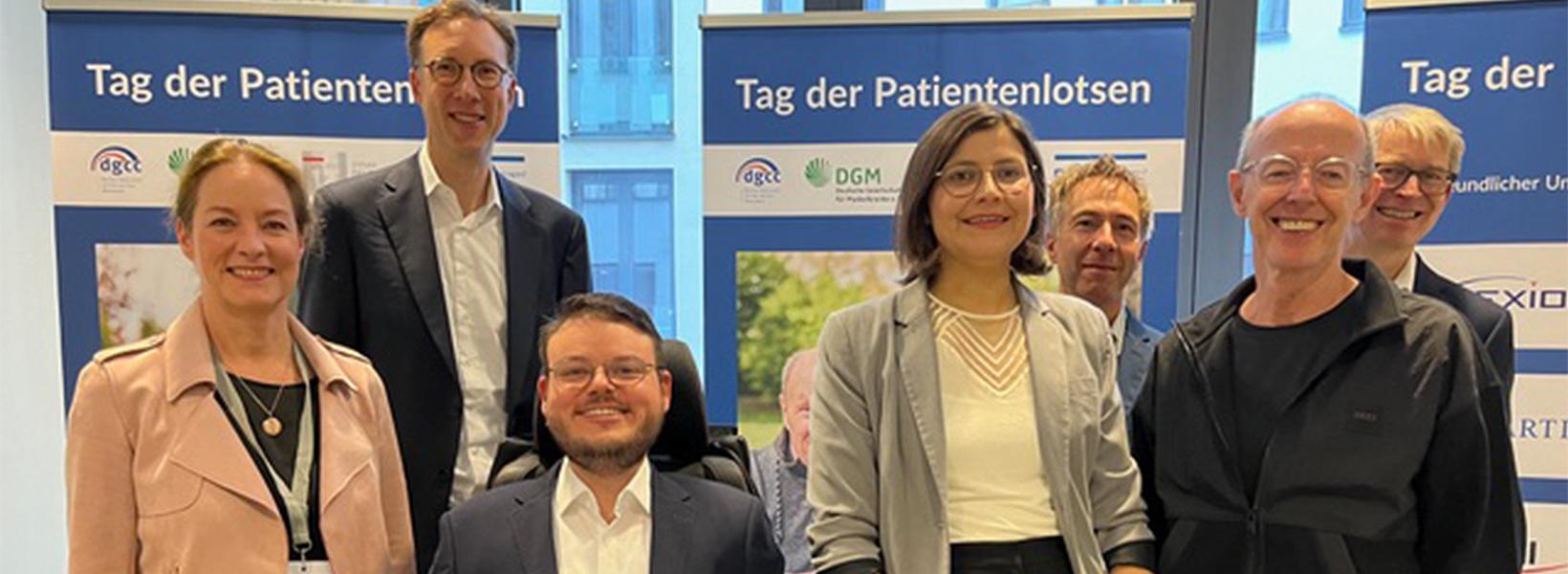Caring during hard times: foundation wants to make pilot programs the norm


Caring during hard times: foundation wants to make pilot programs the norm
Autonomous and self-determined - that's how everyone wants to live, even in old age, even with a chronic illness. Patient guides – or pilots – help to make such a life possible for people e.g. after a stroke.
Pilots talk to patients and relatives while they are still in hospital and then accompany them for a year. They take care: by information, advice, coordination and documentation of therapy measures, through their support in applying for aids as well as in finding a care service or organizing any necessary modifications at home. Dr. Michael Brinkmeier, Chairman of the German Stroke Foundation: “Every patient is different. A standard aftercare pathway does not fit everyone. This is where individual advice and support from patient guides comes into play.” In this way, patient guides also contribute to the long-term success of the therapy.
After a stroke, after treatment in hospital, life goes on. However, it is then that stroke patients are often left to their own devices: Not only with everyday activities that previously didn't require a second thought, but also with tasks that become necessary due to the illness: Applying for aid, for example, or dealing with social or employment law issues.
To ensure that patients with an increased need for advice and care do not fall by the wayside in our healthcare system, the German Stroke Foundation is campaigning for pilot programs to become part of standard care nationwide, i.e. supported by health insurance companies. “The complexity of the disease can overwhelm patients and relatives from one minute to the next. At one moment everything is normal, I don't need the healthcare system. But then it has to support me,” explains Dr. Brinkmeier. “However, pilot programs are not a fully comprehensive insurance system, but offer help for self-help in order to participate in society again.”
Find out more in the interview with Dr. Michael Brinkmeier and at https://www.schlaganfall-hilfe.de/de/das-tun-wir/aktivitaeten/schlaganfall-lotsen
Video:
German/Deutsch
Für alle im Ernstfall: Stiftung möchte Lotsenprogramme zur Regel machen
Autonom und selbstbestimmt – so möchten wohl jede:r leben, auch im Alter, auch mit einer chronischen Erkrankung. Patientenlotsen tragen dazu bei, ein solches Leben für Menschen beispielsweise nach einem Schlaganfall möglich zu machen.
Bereits während des Klinikaufenthalts führen Lotsen Gespräche mit Patient:innen und Angehörigen, danach begleiten sie diese ein Jahr lang. Sie kümmern sich: informieren, beraten, koordinieren und dokumentieren Therapiemaßnahmen, unterstützen bei der Beantragung von Hilfsmitteln oder der Suche nach einem Pflegedienst sowie möglicherweise notwendigen Umbaumaßnahmen zu Hause. Dr. Michael Brinkmeier, Vorsitzender der Stiftung Deutsche Schlaganfall-Hilfe: „Jeder Patient ist anders. Ein Standardpfad in der Nachsorge passt nicht auf alle. Hier kommt die individuelle Beratung und Unterstützung durch Patientenlotsen ins Spiel.“ So tragen Patientenlotsen auch zum langfristigen Erfolg der Therapie bei.
Nach einem Schlaganfall, nach der Versorgung im Krankenhaus geht das Leben im Alltag weiter. Dann sind Schlaganfall-Patient:innen allerdings häufig auf sich gestellt: Nicht nur mit alltäglichen Tätigkeiten, für die zuvor kein zweiter Gedanke nötig war, sondern auch mit Aufgaben, die durch die Erkrankung notwendig werden: Anträge zu stellen beispielsweise, oder sich mit sozial- oder arbeitsrechtlichen Fragen auseinanderzusetzen.
Damit Patient:innen mit erhöhtem Beratungs- und Versorgungsbedarf in unserem Gesundheitssystem nicht auf der Strecke bleiben, setzt sich die Stiftung Deutsche Schlaganfall-Hilfe dafür ein, dass Lotsenprogramme bundesweit Teil der Regelversorgung werden, also von Krankenkassen getragen. „Die Komplexität der Erkrankung bricht von einer Minute auf die andere über Patienten und Angehörige ein. In einem Moment ist alles normal, ich brauche das Gesundheitssystem nicht. Aber dann muss es mich unterstützen“, erklärt Dr. Brinkmeier. „Lotsenprogramme sind jedoch kein Vollkasko-System, sondern bieten Hilfe zur Selbsthilfe, um wieder teilzuhaben am Leben in der Gesellschaft.“
Mehr im Interview mit Dr. Michael Brinkmeier und unter https://www.schlaganfall-hilfe.de/de/das-tun-wir/aktivitaeten/schlaganfall-lotsen